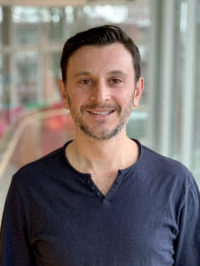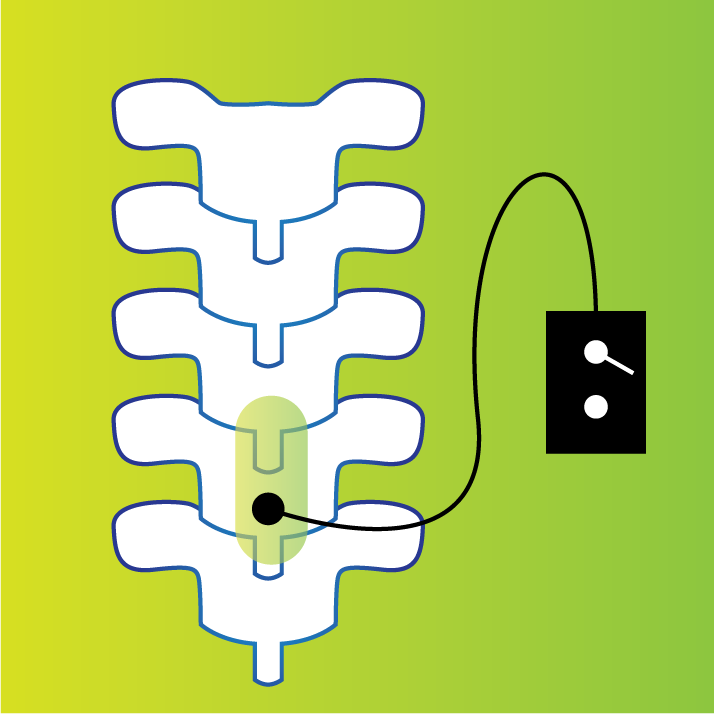
Principal Investigator
B.Sc. [Kinesiology] (Western University), M.D. (Western University), Ph.D. [Integrative Physiology of Exercise] (Western University)
Clinical assistant professor, Division of Physical Medicine and Rehabilitation, UBC
Consultant Physiatrist, Vancouver Coastal Health and Island Health Authorities
ICORD Associate Director, Rehabilitation Research & Services
Research Interests
Electrical Stimulation; Electromyography; Nerve transfer; Peripheral Nervous System; physiatryDr. Berger draws inspiration for his research by observing his patients’ journey through the rehabilitation process after spinal cord injuries and peripheral nerve injuries. It is both inspiring and humbling to watch a patient experience a catastrophic and life-altering event, but then rise to the challenge of their new reality and return to a healthy, meaningful life. Dr. Berger sees his role in this process as finding ways to remove or lessen the impact of the physical, social and emotional barriers these patients encounter during rehabilitation, whether immediately after the injury or many years later. Being a clinician-scientist also offers Dr. Berger the unique opportunity to witness and share in the frustrations and setbacks of his patients, in order to generate research and evidence that will lead to improvements in rehabilitation and function.
Dr. Berger is a clinician-scientist in Physical Medicine & Rehabilitation, with sub-specialty training in electrodiagnosis and neuromuscular diseases. His research investigates the downstream effects (e.g. changes and adaptations) of neurotrauma on the peripheral nervous system, including the neuromuscular and autonomic nervous systems, using a combination of human neurophysological and imaging measurement techniques. These are the systems that are directly responsible for effective interactions with the patients’ environment. Understanding and mitigating the downstream effects of neurotrauma on these systems, will allow for more targeted and patient-specific disease-modifying and rehabilitation treatments.
Dr. Berger is currently researching the potential applications and outcomes of a surgical technique called nerve transfer, which is being used to help restore hand and arm function to patients with SCI and other nerve injuries, in conjunction with members of the BC Centre for Complex Nerve Injuries. “Results could help physicians decide which patients will benefit most from surgery, when to perform it and how best to deliver rehabilitation, in order to provide the best chance for return of arm function”, says Dr. Berger. Read more about this work on VCHRI’s interview with him.
Currently recruiting for:
Recent Collaborations
Dr. Berger frequently collaborates with ICORD, UBC, national and international Collaborators. Dr. Berger is the PI of a Canadian multi-centre study of nerve transfer surgery in SCI, collaborating with surgeons at Dalhousie University, Queen’s University and the University of Toronto. He often collaborates with Dr. Kip Kramer, ICORD PI, and they share grant funding for projects examining neuropathic pain. Dr. Berger also works closely with Dr. Colin Franz at Shirley Ryan AbilityLab in Chicago, investigating downstream neurophysiological function after SCI.
Awards
Some of Dr. Berger’s major awards and accomplishments include:
- Health Professions-Investigator Award (Michael Smith HRBC, 2023-2028)
- Editorial Board, Muscle & Nerve Journal (2024-2029)
Current Lab Members
| Undergraduate Students | Masters Students | PhD Students | Postdoctoral Fellows | Administrative Staff |
|---|---|---|---|---|
| Hannah Rho | Christina Whang |
Emmanuel Ogalo | Matt Debenham | Harvey Wu |
| Laurence Poirier | Kyle Mission |
Trainee Awards
| Year | Trainee | Award |
| 2024 | Christina Whang |
Canada Graduate Scholarships – Master’s program |
| 2023 | Christina Whang |
1st Place platform presentation, ICORD Trainee Research Day |
| 2023 | Hannah Rho | Top Poster Award, UBC Science Research Day |
Current Opportunities in the Lab
Dr. Berger is currently accepting trainees at the Masters, PhD, and Postdoctoral level. For inquiries regarding the Berger laboratory, please contact laboratory coordinator Dr. Harvey Wu.
Recent publications
- Ogalo, E et al.. 2025. Unpredictable movement-evoked pain alters cortical motor preparatory activity.. J Neurophysiol. doi: 10.1152/jn.00237.2025.
- Scheuren, PS, Ogalo, E, Berger, MJ, Kramer, JLK. 2025. More is more: combining therapies to enhance spinal cord injury recovery.. Brain. doi: 10.1093/brain/awaf164.
- Stephens, T et al.. 2025. Understanding surgical decision-making in patients with traumatic upper extremity peripheral nerve injury: A retrospective cohort study.. J Plast Reconstr Aesthet Surg. doi: 10.1016/j.bjps.2025.02.022.
- Linde, LD et al.. 2025. Ulnar compound muscle action potentials predict hand muscle strength 1 year after cervical spinal cord injury: A retrospective analysis.. Ann Phys Rehabil Med. doi: 10.1016/j.rehab.2025.101959.
- Debenham, MIB et al.. 2025. Evaluating motor unit properties after nerve transfer surgery.. J Neurol Sci. doi: 10.1016/j.jns.2025.123438.


